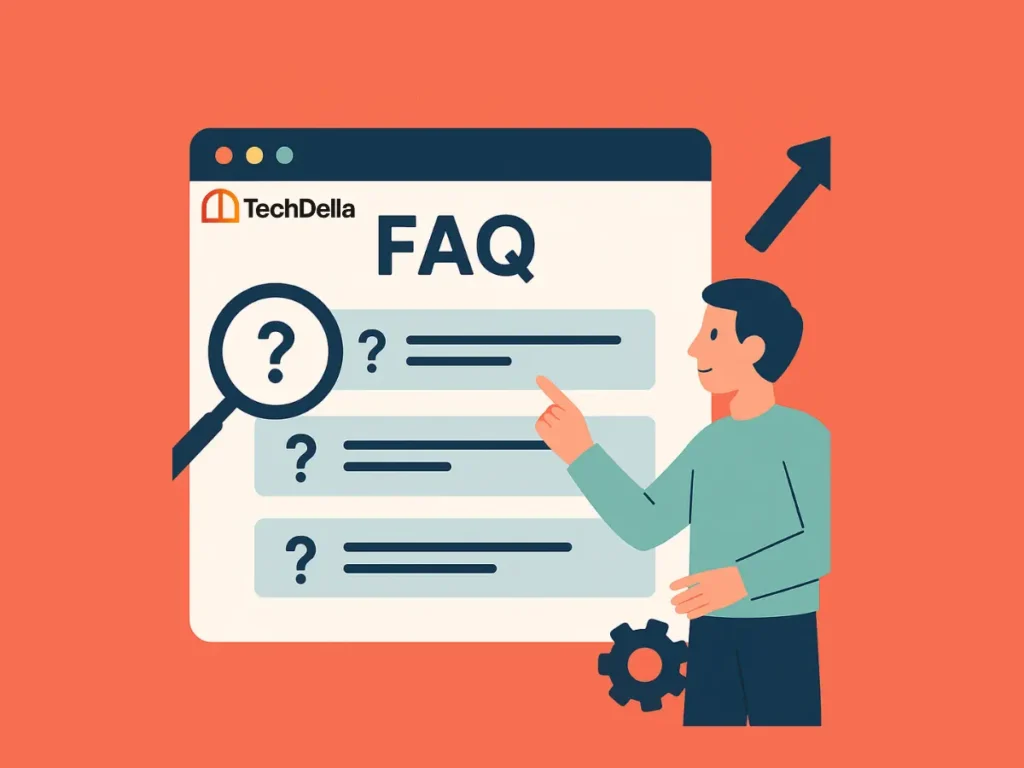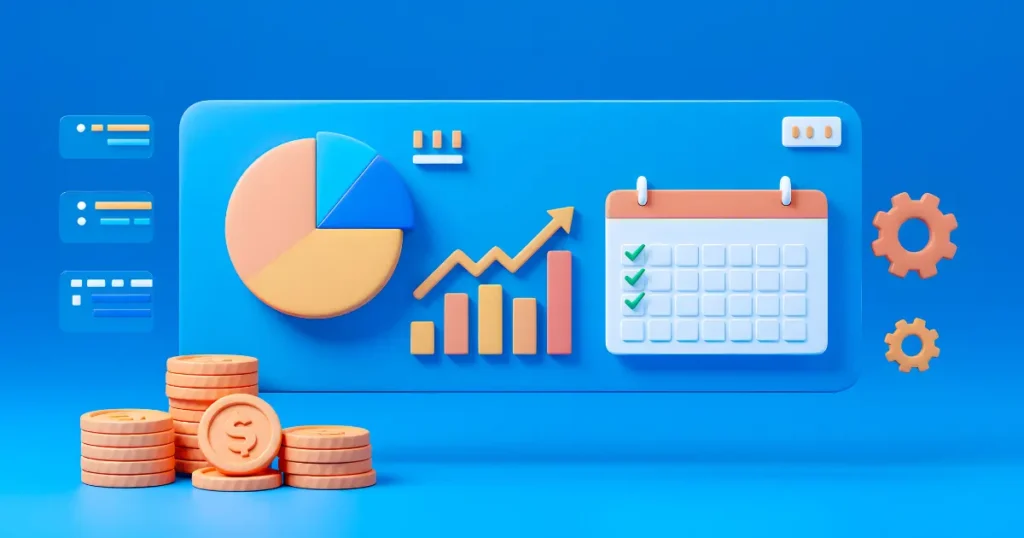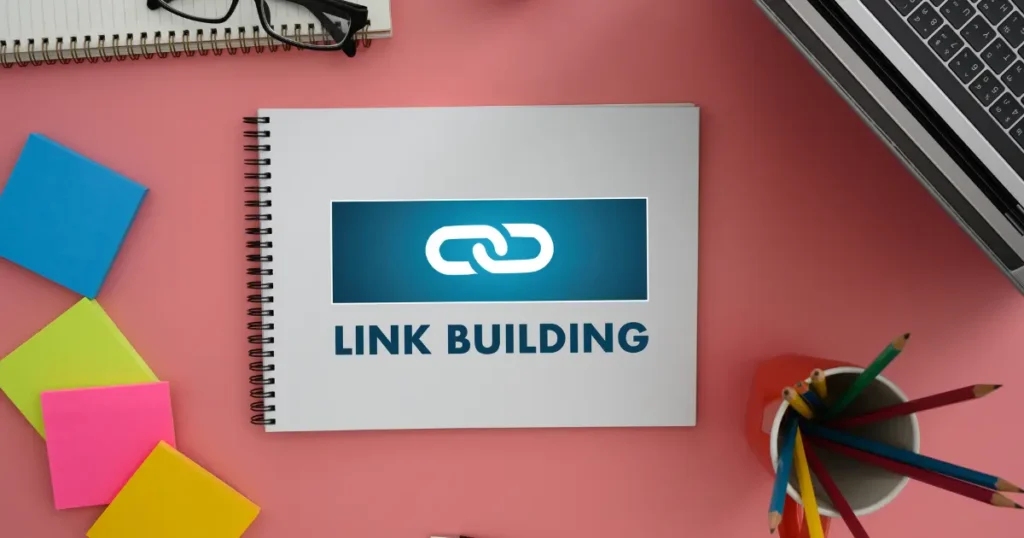
You’ve probably got an FAQ page tucked somewhere on your website. Maybe it’s gathering dust at the bottom of your footer navigation. Maybe you threw it together quickly because everyone said you needed one. But here’s the truth most businesses miss: your FAQ page can be one of your most powerful SEO assets, if you know how to optimize it properly.
Optimizing FAQ pages for SEO isn’t just about answering customer questions anymore. It’s about understanding search intent, capturing featured snippets, and creating content that Google loves to rank. When done right, your FAQ page becomes a traffic magnet that pulls in qualified leads actively searching for solutions you provide.

Why FAQ Pages Matter for SEO Performance
Search engines have evolved to prioritize content that directly answers user questions. That’s exactly what FAQ pages do. They match question-based queries, provide immediate value, and signal to Google that your site understands what users actually need.
FAQ pages naturally target long-tail keywords and question phrases that regular product pages miss. When someone types “how does X work” or “what’s the best way to Y,” a well-structured FAQ page can swoop in and claim that top spot. Plus, FAQ content is prime real estate for schema markup, which helps search engines understand and display your content better in search results.
At Techdella, we’ve seen firsthand how strategic FAQ optimization transforms website performance. When we rebuilt the FAQ structure for a creative agency client, their organic traffic jumped 150% within three months. The secret wasn’t just adding questions; it was optimizing FAQ pages for SEO with precision, purpose, and technical excellence.
Understanding Search Intent Behind FAQ Queries
Search intent plays a crucial role in optimizing FAQ pages for SEO. Not every question carries the same value, and knowing the difference can determine whether your page ranks or not. There are four main types of search intent: informational, navigational, transactional, and commercial investigation.
Your FAQ page should mainly focus on informational and commercial investigation queries, since these come from users actively researching solutions or comparing options before making a decision. To find the right questions, research what your audience is asking using tools like AnswerThePublic, Google’s “People Also Ask” boxes, and keyword platforms. Let data, not assumptions, guide your FAQ topics.
Best Practices for Structuring Your FAQ Content
Creating a high-performing FAQ page starts with a proper structure that serves both search engines and human visitors equally well.

1. Create a Clear Content Hierarchy
Structure matters enormously when optimizing FAQ pages for SEO. Google rewards content that’s easy to scan, logically organized, and genuinely helpful. Start with a clear hierarchy that groups related questions into categories. This helps both users and search engines navigate your content efficiently.
2. Use Natural, Conversational Language
Each question should be concise and conversational, mirroring how real people actually search. Instead of “Product Specifications Inquiry,” write “What are the technical specifications of your product?” Natural language wins every time. Keep answers focused but comprehensive, aim for 50 to 150 words per answer, depending on complexity.
3. Apply Proper HTML Formatting
Use proper HTML heading tags (H2 for questions, paragraphs for answers) to create a semantic structure. This signals content hierarchy to search engines and improves accessibility. Avoid walls of text. Break up longer answers with bullet points, short paragraphs, and white space to improve readability and engagement.
Techdella’s content marketing services specialize in creating conversion-focused FAQ pages that balance user experience with technical SEO requirements. We structure every FAQ section to maximize both readability and search visibility, ensuring your content performs across all metrics that matter.
Implementing Schema Markup for Maximum Visibility
Technical implementation separates good FAQ pages from those that dominate search results with rich snippets and featured positions.

1. Understand FAQ Schema Fundamentals
Schema markup is your secret weapon for FAQ SEO success. The FAQ schema tells search engines exactly what your content represents, dramatically increasing your chances of appearing in rich results and featured snippets.
When implemented correctly, your FAQ answers can display directly in search results with expandable dropdowns, instant visibility before users even click through.
2. Use JSON-LD Format Correctly
Adding FAQ schema isn’t complicated, but it requires precision. Use JSON-LD format, which Google prefers, and include it in the head or body of your HTML. Each question-answer pair should be wrapped in its own FAQPage schema element with properly formatted “mainEntity” properties.
3. Avoid Schema Misuse
Don’t overuse the FAQ schema. Only apply it to actual FAQ pages or sections where you’re genuinely answering common questions. Misusing schema can trigger manual actions from Google, hurting rather than helping your rankings. When in doubt, stick to legitimate FAQ content that provides real value.
The technical SEO expertise at Techdella includes comprehensive schema implementation across all your high-value pages. Our SEO optimization services ensure your FAQ pages are technically perfect, properly marked up, and positioned to capture those coveted featured snippet positions.
Keyword Integration and On-Page Optimization Techniques
Strategic keyword placement transforms ordinary FAQ content into ranking machines that capture targeted search traffic consistently.

1. Balance Primary and Secondary Keywords
Smart keyword integration separates amateur FAQ pages from ranking powerhouses. Optimizing FAQ pages for SEO means strategically placing your target keywords in questions, answers, and supporting content without stuffing or sounding robotic. Your primary keyword should appear naturally throughout, while secondary keywords fill out the semantic landscape.
2. Target Long-Tail Keyword Variations
Target both short-tail and long-tail keywords within your FAQ structure. Questions naturally accommodate long-tail variations like “how to optimize FAQ pages for voice search” or “best practices for FAQ schema markup.” These specific queries often have less competition and higher conversion intent than broader terms.
3. Incorporate Semantic Keyword Clusters
Include related keywords like FAQ page optimization, structured data for FAQs, question-based content strategy, featured snippet optimization, and voice search FAQ optimization. These semantic variations help search engines understand your content’s full context and match it with diverse but related search queries.
4. Optimize Traditional SEO Elements
Don’t forget traditional on-page SEO elements. Write a compelling meta description that includes your primary keyword. Use descriptive, keyword-rich URLs. Optimize your title tag. Add relevant internal links pointing to product pages, blog posts, and service pages where appropriate. Every element contributes to overall page authority.
To ensure your FAQ pages and other web content are fully optimized for visibility and conversions, consider exploring our On-Page SEO services, where we help businesses fine-tune their pages, structure, and keywords to achieve higher rankings and sustainable search traffic growth.
Linking Strategy and Internal Architecture
Smart internal linking turns your FAQ page from an isolated resource into a powerful hub that strengthens your entire site’s SEO performance.

1. Build Strategic Outbound Links
Your FAQ page shouldn’t exist in isolation. Strategic internal linking transforms FAQ pages into central hubs that distribute authority throughout your site. Link from individual FAQ answers to relevant product pages, detailed blog posts, and service descriptions. This guides users deeper into your funnel while helping search engines discover and understand your content relationships.
2. Create Strong Inbound Link Networks
Also, link to your FAQ page from other high-authority pages on your site. Blog posts, product pages, and your homepage should all reference your FAQ page when contextually appropriate. This signals importance to search engines and improves your FAQ page’s domain authority.
3. Develop Topic-Specific FAQ Pages
Lastly, consider creating individual FAQ pages for each product line or service rather than cramming everything into a single massive page. This allows for more targeted optimization and better matches specific search intent. Cross-link these focused FAQ pages to create a cohesive knowledge network.
Common Mistakes That Kill FAQ Page Rankings
Many businesses make critical mistakes when optimizing FAQ pages for SEO. The biggest one is treating FAQs as an afterthought. A simple list of generic questions won’t drive results. Effective FAQ optimization requires the same strategy and attention as your top landing pages. Another mistake is writing for the company instead of the customer. The FAQ section should genuinely answer real user questions, not sound like a sales pitch.
Another major issue is failing to keep content updated. Outdated answers hurt credibility and rankings since search engines prioritize fresh, relevant content. Regularly audit and refresh your FAQs based on new customer feedback. Also, avoid technical errors like broken links, slow load times, and missing schema markup. To rank well, your FAQ page must meet strong technical standards and stay user-focused.
Mobile Optimization and Page Speed Considerations
Mobile optimization isn’t optional anymore. Most FAQ searches happen on mobile devices, especially voice searches, where people ask questions conversationally. Your FAQ page must load quickly, display perfectly on small screens, and provide effortless navigation on touch devices.
Test your FAQ page speed using Google PageSpeed Insights and aim for scores above 90 on mobile. Compress images, minimize JavaScript, enable browser caching, and consider using a content delivery network. Every second of load time impacts both user experience and search rankings.
Make sure your FAQ structure works beautifully on mobile. Collapsible accordion-style FAQs save space and improve usability on smaller screens. Ensure tap targets are large enough, text is readable without zooming, and navigation is thumb-friendly. Mobile-first design isn’t a bonus; it’s a ranking requirement.
How Techdella Transforms FAQ Pages Into Revenue Drivers
At Techdella, we don’t just optimize FAQ pages; we architect them as strategic conversion assets. Our approach combines technical SEO mastery with a deep understanding of user psychology and content strategy. We’ve helped startups and scaling companies turn overlooked FAQ pages into their highest-performing organic traffic sources.
Our comprehensive CMO-as-a-service model means you get full-stack execution without the overhead of hiring an in-house team. We handle everything from keyword research and content creation to schema implementation and ongoing optimization. You focus on building your product while we build your organic visibility.
Whether you’re launching a new product or scaling an established business, we become your embedded growth partner. Our team speaks founder fluently, moves with urgency, and delivers results you can track in real-time. We’re proactive, data-driven, and always available when you need us.
Frequently Asked Questions
How many questions should an FAQ page have for optimal SEO?
There’s no magic number, but aim for 10 to 30 high-quality questions that genuinely address user intent. Quality matters far more than quantity. Focus on answering the questions your actual customers ask rather than inflating numbers with irrelevant content.
Can FAQ pages rank for competitive keywords?
Absolutely. FAQ pages excel at capturing long-tail variations and question-based searches that product pages miss. While they may not rank for ultra-competitive head terms, they can dominate valuable mid-tail keywords with strong commercial intent.
Should I use the FAQ schema on every page of my website?
No. Only apply the FAQ schema to pages that genuinely contain frequently asked questions in a Q&A format. Misusing schema violates Google’s guidelines and can result in manual penalties. Use it strategically on legitimate FAQ content only.
Take Your FAQ Page From Functional to Phenomenal
Optimizing FAQ pages for SEO isn’t a one-time project; it’s an ongoing strategy that compounds results over time. Every question you answer creates another opportunity to rank, another chance to capture a featured snippet, another doorway for qualified traffic to discover your business.
The difference between an average FAQ page and a high-performing one comes down to strategy, execution, and expertise. You need someone who understands both the technical requirements and the content nuances that make FAQ pages rank and convert.
Ready to transform your FAQ page into a traffic-generating machine? Book a discovery call with Techdella today, and let’s create an FAQ strategy that drives real results. We’ll analyze your current setup, identify opportunities you’re missing, and show you exactly how our full-stack approach can turn your FAQ page into one of your most valuable marketing assets. Don’t let another day of potential traffic slip away, let’s start optimizing.




